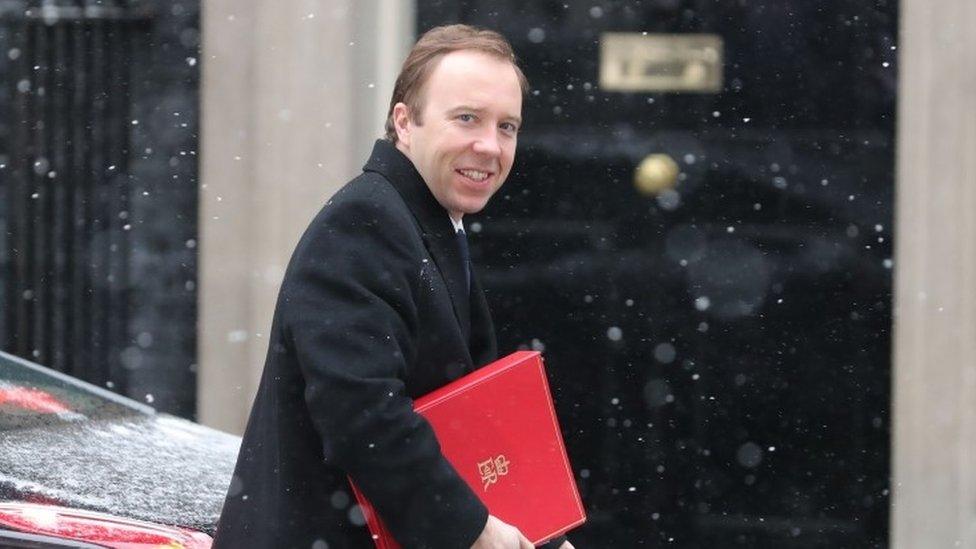Leveson Inquiry: Matt Hancock axes proposed second stage
- Published

Culture Secretary Matt Hancock has said the government will not implement the second stage of the Leveson Inquiry.
The inquiry, set up by David Cameron after the phone hacking scandal, was due to examine relations between journalists and the police.
But Mr Hancock said the "world had changed" since Leveson's 2012 report and the press had cleaned up its act.
Labour's Tom Watson said the decision was a "bitter blow to the victims of press intrusion".
Mr Hancock also announced that the government would not put Section 40 of the Crime and Courts Act - which would force media organisations to pay legal costs of libel cases whether they won or lost - into effect and said they would seek repeal "at the earliest opportunity".
The Conservatives opposed Leveson part two in their general election manifesto but peers voted to revive it last month through an amendment to the Data Protection Bill currently going through Parliament.
In a Commons statement, Mr Hancock said: "We do not believe that this costly and time-consuming public inquiry is the right way forward."
Labour's deputy leader and media spokesman Tom Watson said the newspapers had been "lobbying hard" for this outcome and that Mr Hancock would get "plaudits" in Friday's leader columns.
Watson defends Mosley
Mr Watson claimed the newspapers had "helped write" the culture secretary's statement and accused Mr Hancock of failing to "stand up to the tabloid-style newspapers who are propping up this government".
He also defended privacy campaigner Max Mosley, who is facing questions in the Daily Mail and The Sun about a racist leaflet published in the early 1960s.
"If I thought for one moment he held those views, contained in that leaflet of 57 years ago, I would not have given him the time of day.
"He is a man, though, who in the face of great family tragedy and overwhelming media intimidation, chose to use his limited resources to support the weak against the strong."
Mr Mosley has donated about Ā£500,000 to Mr Watson's office and has said his family money has been used to back official media regulator Impress, set up in the wake of Leveson. The Labour Party has said it will not accept further donations from him.
Mr Hancock accused Mr Watson of being "tied up with the opponents of press freedom" and said Labour's proposals would "would lead to a press that is fettered and not free".
'Seismic change'
The culture secretary told MPs "there were far too many cases of terrible behaviour" by the press and "over 40 people were convicted" following police investigations.
But he said there have been changes to the behaviour of the press and the procedures of the police since the Leveson Report was published in 2012.
The media landscape had been through "seismic change" in recent years, with falling circulations, local newspapers closing and the rise of "clickbait" and "fake news" on social media, he told MPs.
Asked what his message would be to the victims of press intrusion, Mr Hancock said the media industry had to be allowed to "hold the powerful to account and respond to today's challenges", adding that changes advocated by Leveson would "make those challenges harder".
Mr Hancock told MPs the Independent Press Standards Organisation (IPSO) - set up by the UK's main newspaper groups as an alternative to Impress - had "largely complied with Leveson's recommendations".
What was the Leveson Inquiry?
Lord Justice Leveson was appointed in 2011 to carry out an inquiry into press standards, following the phone-hacking scandal.
In his original terms of reference, it was envisaged the inquiry would be split into two parts.
The first, looking at the culture and practices of the press and relations between politicians, press and the police, took place in 2011 and 2012, with a full report in November 2012.
The second part was scheduled to consider the extent of improper conduct and governance failings by individual newspaper groups, how these were investigated by the police and whether police officers received corrupt payments or inducements.
- Published10 January 2018